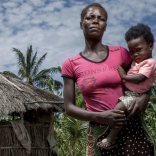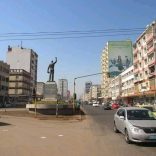Mozambique: Around 75% of women in Cabo Delgado province illiterate - UNHCR
Revision of SNE Law extends compulsory education to Grade 9 – Mozambique

Folhe de Maputo (File photo)
A revision of the National System of Education recently proposed by the Ministry of Education and Human Development will make schooling in Mozambique compulsory from the 1st to the 9th Grade.
At a time when only a third of pupils entering primary school finish Grade 7 in the country’s schools, the restructuring aims to make the education system more functional, fluid and effective.
Other measures contained in the revision would reduce primary education from seven to six grades divided into two cycles comprising the 1st to 3rd Grades and 4th to 6th Grades. Secondary education will cover the 7th to 12th Grades, with the first cycle going comprising the 7th to the 9th Grades and the second the 10th to 12th.
Children must be enrolled for Grade 1 in the year they reach the age of six years before June 30 and not December 31 as in the current regulation, a change aimed at harmonising the behavioural age of students.
According Deputy Minister of Education and Human Development Armindo Ngunga, the new law will improve the effectiveness and efficiency of the education system as well as the flow of students, and there will be more graduates without additional resources.
Also Read: Classes of 173 students in Niassa; Mozambique needs 32,000 more classrooms – A Verdade
“The National Education System has seven million enrolled students, of whom only one million attend secondary school. We intend the ongoing review to increase the number of graduates and improve the quality of teaching,” Ngunga said.
Also Read: Russia funds National School Meal Programme in Mozambique
The new legislation foresees innovative redefinition of pedagogical principles and objectives, the introduction of a basic education system of nine classes and better conformity with higher education and technical vocational education structures.
“The law in force is already 25 years old and many things have happened in this period. Other laws have emerged related to other areas of education, such as the Law of Technical Vocational Education and of Higher Education, and we need to review this instrument because the child we have today is not the same as 25 years ago,” Ngunga explained.
Also Read: More than 50% of girl students say they have been sexually harassed in school by a teacher – Study
One of the innovations in the proposal is that vocational education will be aimed at young people and adults who demonstrate talents and special skills in the fields of science, arts and sport.
Another important article of the current law is the one that establishes Grade 7 as the entry level for the primary teacher-training, although in fact under this provision the current entry level for a teacher training courses is Grade 10.
Also Read: Premature marriages & initiation rites: Nearly 73,000 drop-out of school in Niassa – Mozambique












Leave a Reply
Be the First to Comment!
You must be logged in to post a comment.
You must be logged in to post a comment.